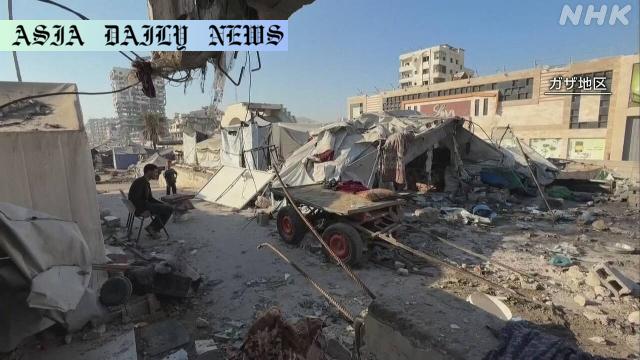Operation Expansion: Netanyahu plans to escalate military operations in Gaza, amid stalled ceasefire talks and worsening humanitarian crisis.
Operation Expansion: Netanyahu decides to intensify Gaza operations.
Ceasefire negotiations with Hamas in Qatar have stalled.
Humanitarian concerns arise with worsening conditions in Gaza.

Context of the Ongoing Conflict in Gaza
The Israeli-Palestinian conflict remains one of the most prolonged and complex geopolitical challenges of our time. Recently, Prime Minister Benjamin Netanyahu announced an escalation of Israel’s military campaign against Hamas in Gaza, marking a pivotal escalation in the conflict. The decision follows the breakdown of ceasefire negotiations mediated by the United States in Qatar. The ceasefire aimed to secure a 60-day truce and the release of hostages. However, reports indicate that Israel withdrew its representatives, citing dissatisfaction with the terms and lack of progress in deliberations.
Netanyahu’s use of the term “occupation of the Strip” drew particular attention, signaling the likelihood of prolonged military presence in Gaza. This move has raised international concern regarding potential humanitarian consequences, as the population in Gaza is grappling with severe food shortages and a crumbling infrastructure. The proposed military actions may exacerbate the crisis, especially in areas where hostages are believed to be held. The Israeli Defense Forces (IDF) have been instructed to prioritize actions that would dismantle Hamas’ military capabilities while also securing the release of hostages.
Implications of the Military Expansion
The expanded military campaign carries deep geopolitical and humanitarian implications. On the one hand, Israel asserts that dismantling Hamas is crucial to ensuring its national security and curbing future attacks. On the other hand, the people of Gaza face a worsening humanitarian situation as limited access to food, water, and medical supplies takes a devastating toll. International organizations have warned that intensifying conflict in densely populated areas could lead to catastrophic civilian casualties and displacement.
This escalation also underscores regional dynamics, as Qatar’s role as mediator further complicated negotiations. Multiple stakeholders, including the United States, have expressed apprehension about the potential fallout. If hostilities surge, neighboring countries may feel the strain of a potential refugee influx, stretching regional resources and stoking tensions. The international community’s response will be crucial in shaping the progression and eventual resolution of this conflict.
The Role of Domestic and International Pressure
Netanyahu’s decision to move forward with Operation Expansion does not come without controversy within Israel. Critics have expressed reservations about the feasibility of achieving stated military objectives without irrevocable damage to Israel’s image and values. Moreover, Netanyahu reportedly warned the IDF Chief of Staff to reconsider his position if the plan does not align with his vision. This strong stance highlights internal pressures on military and political leadership to deliver tangible outcomes.
Meanwhile, global response to the situation is intensifying. Human rights organizations and several governments have voiced concerns over disproportionate use of force and civilian suffering. Balancing military strategy with diplomatic engagement will be critical for Israel as calls for accountability grow louder on international platforms. At the same time, pressure mounts on Hamas to agree to ceasefire terms that could alleviate humanitarian suffering and present the possibility of long-term negotiation frameworks.
Conclusion: What Lies Ahead
The escalation of military operations in Gaza marks a grim chapter in this decades-long conflict, testing the resilience of those in the region and the determination of global stakeholders to mediate a resolution. As the Israeli government pushes forward with its operation against Hamas, the world watches with apprehension. The path forward appears fraught with complexities, balancing national security priorities with humanitarian concerns. Achieving peace will require innovative solutions, patient diplomacy, and perhaps most crucially, unwavering commitment to core human rights principles.
Commentary
The Ethical Dilemmas of Military Escalation
Prime Minister Netanyahu’s decision to expand Israel’s military campaign in Gaza presents a stark ethical dilemma. On one hand, the Israeli government has cited national security imperatives and the need to dismantle Hamas’ capabilities as critical goals. However, this pursuit carries significant risks, particularly to civilian populations already grappling with dire humanitarian conditions. Balancing the right to national self-defense with the responsibility to minimize harm to innocents remains one of the most grueling challenges of modern geopolitics.
A Humanitarian Crisis in the Making
The situation in Gaza has deteriorated rapidly in the wake of these developments. Reports of severe food shortages and worsening living conditions underscore the urgent need for international humanitarian aid. However, sustained military operations often hinder, rather than facilitate, the delivery of such aid. If the Israeli government moves forward with plans that potentially risk civilian lives, it might find itself facing a catastrophic humanitarian crisis, further complicating both its military objectives and its global standing.
The Role of Regional and Global Mediation
One cannot overlook the role of negotiation and international diplomacy in conflicts of this scale. The impasse in Qatar highlights the fragility of ceasefire discussions and the difficulty of aligning stakeholder interests. Yet, the international community has a critical role to play in mediating between Israel and Hamas while ensuring that the humanitarian crisis does not spiral out of control. Regional actors like Qatar and global powers like the United States must intensify efforts to find common ground that addresses the needs of both sides.
Reflecting on Responsibility and Human Cost
Ultimately, this situation urges us to reflect on the broader implications of conflict and the costs borne by innocent populations. Military escalations, while sometimes deemed necessary, carry profound consequences that outlast the initial strategic objectives. Governments and leaders, therefore, have an ever-present duty to consider long-term repercussions, and perhaps more importantly, the lasting impact these actions have on the lives of civilians caught in the crossfire. As we observe these developments, it is imperative that the voice for peace remains louder than the call for war.


